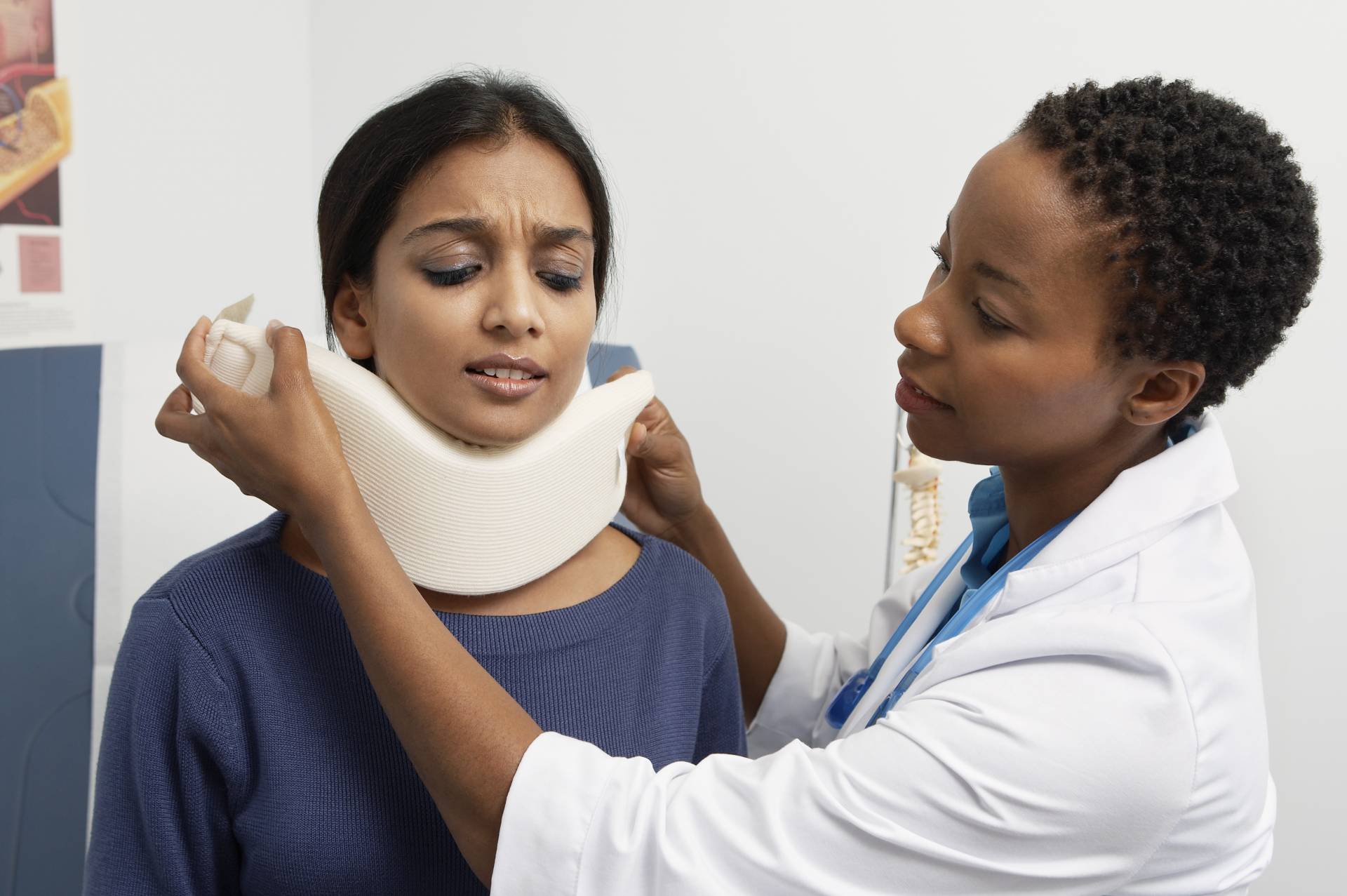Rear-end collisions are a very common type of car accident in Georgia.
Rear-end accidents are also known as “fender benders.”
However, they can still cause a significant amount of damage as one collides into the back of another.
Even if the collision happens at a speed under 10mph, the driver and any vehicle occupants can suffer neck and soft tissue injuries, among others.
Some of those injuries may not show symptoms until hours or days after the crash.
Accident victims need to seek medical attention as soon as they can after an accident occurs.
Many accident victims just want to go home and put the accident behind them.
However, injuries sustained from a rear-end collision may not be immediately apparent and can be harder to treat weeks after the event.
In the article below, we will discuss some of the most common injuries reported after a rear-end collision.
Whiplash
Whiplash is an extremely common injury sustained after a rear-end collision.
This isn’t surprising since the soft tissue damage of whiplash is caused by violent, sudden neck and head movement, similar to the movement caused by a rear-end collision.
If you’re caught unaware, the whiplash injury is usually more severe.
This happens because you don’t have a chance to brace for impact, so your muscles are left in a relaxed state rather than a contracted one.
This allows your head, neck, and back to move more violently, increasing your chances of a severe injury.
The National Safety Council has reported that 80% of people who suffer a whiplash injury experience pain and soreness that lasts longer than a week.
50% of people have pain and soreness that lasts more than a year.
Concussion
Medical personnel will watch for symptoms of a concussion after a car accident.
Concussions occur in rear-end collisions if your brain strikes the inside of your skull, causing bruising and tissue compression.
Concussions don’t always reveal themselves at the scene of the crash.
That’s why you and your family should watch out for symptoms of a concussion for at least 24 hours immediately following an accident.
The main things to keep an eye on are a loss of balance and nausea.
Other symptoms may include headaches, blurred vision, dizziness, inability to concentrate, and sensitivity to sounds and light.
Without immediate medical attention, serious complications can occur due to a concussion.
Back Injuries
Even fender benders can cause serious back injuries.
The force of impact from the collision can result in the compression of the spine and the discs in your lower spinal column.
The force of the accident can exert extraordinary pressure on the vertebrae, resulting in soreness and even excruciating low back pain.

Soft Tissue Injuries
Flexion/extension injuries to the spine’s soft tissue are common in rear-end accidents, usually, because the body experiences a violent jolt.
Severe trauma caused by being jerked back and forth when your vehicle is rammed from behind can damage the nerves and limit the use of limbs.
Even at low speeds, your head’s sudden snapping forward and back can cause inflammation and mobility damage.
Symptoms can include pain in the shoulder blades, neck pain, headaches, dizziness, and even vision impairment.
Because adrenaline is rushing through your body after a car accident, you may not experience symptoms right away.
Some victims don’t start showing any symptoms until weeks after a rear-end accident.
When symptoms do emerge, contact a doctor immediately.
Spinal Cord Paralysis
If a brain or spinal injury is severe enough, it can leave you entirely or partially paralyzed.
The degree of paralysis depends on the areas of the spine affected in the crash and how severe the injuries to those areas are.
When a victim injures their spinal discs or specific parts of the brain, it increases the chances of the rear-end collision them becoming paralyzed.
Herniation
A herniated disc occurs when the outer fiber surrounding a disc tears or ruptures due to trauma from a car accident.
You may experience a herniated disc in the cervical or thoracic region.
However, spinal disc herniations occur most frequently in the lumbar region.
Severe herniations caused by rear-end collisions can result in back pain, numbness, tingling, and even paralysis.
Sometimes the symptoms of a herniation are misidentified or delayed due to shock, so it’s crucial to pay attention to your body and how you feel after the collision.
If you have a herniation, you may even experience pain in your legs, feet, or knees.
Head and Brain Injuries
No matter the vehicles’ speed when a rear-end collision takes place, injuries to the head should always be taken extremely seriously.
Even if the airbags go off correctly, you can still strike or even impale your head.
This often results in concussions, a loss of consciousness, lacerations, swelling, bruising, and more.
The National Highway Traffic Safety Association found that 1.7 million people sustain a Traumatic Brain Injury each year.
Of those 1.7 million people, 52,000 dies.
Similar to whiplash, the initial symptoms of traumatic brain injury may not be readily apparent.
It can take hours, days, or even weeks for the injury’s effects to manifest fully.
The most common symptoms of a traumatic brain injury to look out for are:
- Loss of Consciousness
- Dizziness
- Chronic Fatigue
- Abnormal Changes in Behavior
- Impaired Speech
- Reduced Cognitive Performance

Broken Bones
Many people think a broken leg or arm will heal easily.
All it takes is for it to be set in a plaster cast, and after several weeks all will be well, right?
Well, not always.
Sometimes broken bones and especially compound fractures can be extremely severe in a rear-end collision.
This can lead to prolonged medical complications, like secondary infections and internal injuries.
And, incorrectly fused bones can cause lifelong limb deformity.
Even if your broken bone does heal correctly, you may continue to experience decreased functionality, resulting in lost wages and diminished future employment.
Contact The Angell Law Firm if You Were In A Rear-End Collision
If you were injured in a rear-end collision, you need to take steps to aid in your recovery immediately.
You should do all you can to increase your chances of a full medical recovery while minimizing your out-of-pocket expenses.
The first and most important step in this process is hiring an experienced personal injury lawyer to take care of the legal process.
When your lawyer takes over the legal aspects, you can focus all of your time and energy on recovering from your injuries.
The attorneys at The Angell Law Firm have the experience and knowledge to represent you and help you get the compensation you deserve after a rear-end car wreck.
If injured in a rear-end collision, call a personal injury attorney at The Angell Law Firm today.
We will stop at nothing to help win your case.
Want more information on your attorney’s resources? Read our post, “What is Expert Testimony in an Auto Accident Claim?”
Bryce is considered a highly esteemed trial lawyer and a passionate client advocate amongst his peers in the Atlanta legal community. Never afraid to go the extra mile for his clients, Bryce Angell works tirelessly to ensure that each client’s personal injury case gets the attention that it deserves.



